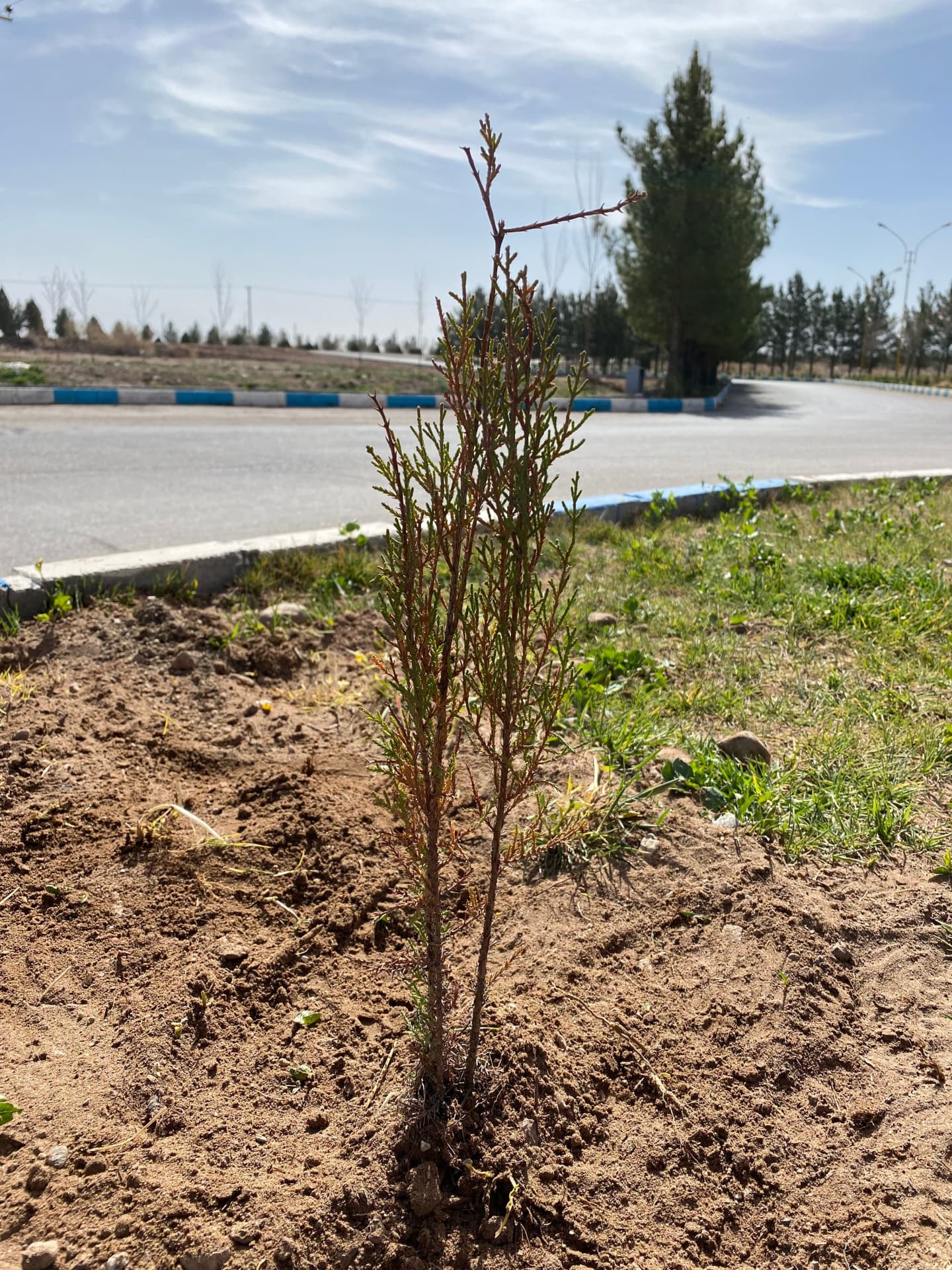Tree Planting
In Sarmolk in the province of Kerman in Iran, we have planted around 650 trees in the last three years. These contribute to better soil fertility and thus to increased productivity as well as climate and environmental protection.

Low soil quality and yield volume
With a population of 340 and a large agricultural area, the village of Sarmolk in the province of Kerman in Iran is an important supplier for the nearby district of Bardsir. With more than 25,000 inhabitants (as of 2016), the population in Bardsir is supplied with animal products, food, and feed from the small village. However, low soil quality is the main reason for low productivity. The goal is to improve soil fertility and thus increase the yield volume.
Better soil fertility through tree planting
Planting trees will breathe new life into the dry soils in Sarmolk. The soil is supported and protected by the shadow of the trees, which in turn ensures the quality and resilience of crops and plants. Both trees and crops benefit from each other and work together. There are strong interactions and support in terms of water and nutrient supply. Trees tend to develop very deep roots and bring water and nutrients up from the deepest layers of the soil. In turn, the soils provide plants and crops with adequate nutrients and water.
650 trees for a better soil
Since 2019, 650 trees have already been planted, visibly thriving and contributing to more sustainable agriculture. Trees and their deep roots also contribute to the achievement of our goals, especially long-term. They already contribute to removing CO2 from the atmosphere, to protecting our environment, and to a more stable climate.


